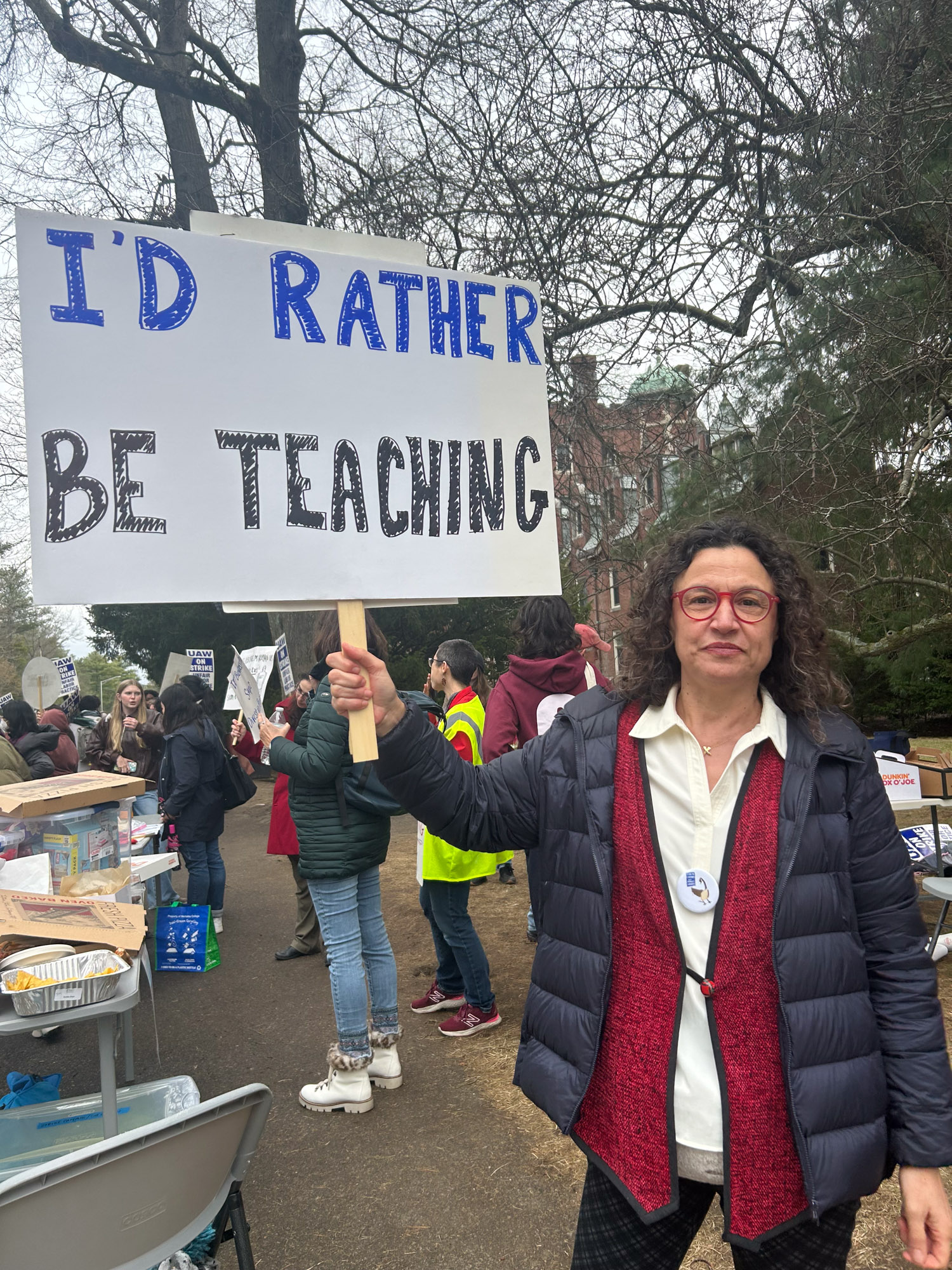Wellesley College professors ended a month-long strike April 24 without gaining a union contract, returning to classrooms and lecture halls that suffered under their absence.

The strike began March 27. The Wellesley Organized Academic Workers bargaining committee wrote in a statement that the strike showcased “an inspiring show of collective power and unity.”
The bargaining committee also expressed the union’s dismay about the college’s response to the strike.
“Rather than address their unlawful practices and negotiate in order to end the strike, the college responded with anti-union rhetoric, delay tactics, and attempts to divide our community,” the committee members wrote.
Provost Courtney Coile, Dean of the College Lia Gelin Poorvu and Chief Human Resources Officer Carolyn Slaboden released a statement on the day the strike ended.
“We look forward to welcoming our valued colleagues back to the classroom and to celebrating upcoming milestones such as the last day of classes, commencement, and reunion, together as a community,” they wrote.
Anne Brubaker, a senior lecturer in the writing program at Wellesley College and a member of the union, said the strike was effective at furthering the union’s goals, such as adding an article within the contract for protections against harassment and discrimination.
“We really stayed strong as a unit,” she said.
Other updates to the contract include a dependent-care benefit for people with children under six years of age, additional dining passes for students to take professors out to meals each semester and improvements in access to medical or parental leave, she said.
The conclusion of the strike resulted from multiple factors, said Brubaker. The union was concerned that administrators might end pay for their workers’ health insurance, especially for international employees who would have their work visas revoked as a result.
“There was no direct threat by the college, but on the other hand, there was an absence of protection,” she said.
Another reason they decided to end the strike was out of concern for students, who will soon receive their final grades.
Hannah Chiou, a senior at Wellesley College studying data science, said she was disappointed by the administration’s response to the strike. Chiou’s parents are both professors at Northeastern University.
“I empathize a lot with what the professors were straining for,” she said. “I know how difficult it is to be in academia, and how often people get mistreated in academia.
She said she is only taking three classes this semester and works as a writing tutor helping another student.
“I’m in a more niche position,” she said.
Any class that was taught by a striking professor was converted into a half-credit course, she said. The class she tutors for was one of the courses reduced.
“I do feel my student was robbed of the full experience that this class could offer,” she said. “The fact they were unable to, and this is the education that they are paying for, is really upsetting.”
The next bargaining session was proposed for Monday, but the union had to cancel so striking faculty could focus on working on their courses, Brubaker said.
“Everybody had been outside in the elements for 30 days,” she said. “It’s quite stressful and an emotional experience.”
The union hopes to resume bargaining next week. The main priorities are improving workers’ compensation and job security for the non-tenured professors, Brubaker said.
Before the strike began, the relationship between non-tenured and tenured professors was strong, she added. Tensions increased once the first proposals for compensation from the union came in around December 2024. The tenured professors also had to teach extra courses and work more to alleviate the loss of striking workers.
The gap in communication capabilities between the college and the union also presented challenges, Brubaker said.
Chiou said Wellesley College is framing the professors in a bad light to parents of students using their mass communication.
“The tone of the communication that the college sent out was also consistently very hostile,” she said.
As a senior, Chiou said ending her college education in this way is not ideal.
“It’s just a very sour note to end my time at Wellesley on,” she said.
















































































































